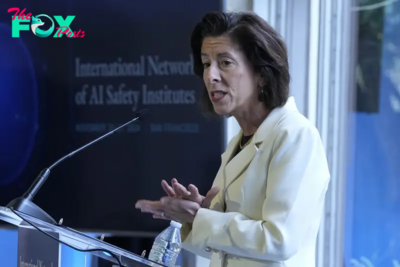US News
The Right Has an Opportunity to Rethink Education in America
The casual observer can be forgiven if it looks like both the left and the right are doing their best to lose the debate over the future of American education.
On the left, public officials and self-righteous advocates practically fall over themselves working to subsidize and supersize bloated bureaucracies, hollowed-out urban school systems, and campus craziness. They’ve mutely watched teacher strikes shutter schools and insisted that “true History” requires the U.S. to be depicted as a cesspool of racism and villainy.
Meanwhile, on the right, bleating outrage impresarios have done their best to undercut the easy-to-make case for educational choice by weaving it into angry tirades against well-liked local schools. They’ve taken Taylor Swift, a strait-laced pop star beloved by middle school and high school girls, and imagined her as part of some bizarre Biden Administration PSYOP. Heck, they’ve even decided to try to “take down” Martin Luther King, Jr., a Civil Rights icon honored for his legacy of justice, equality, and nonviolence.
What gives?
The left has a problem. Democrats have long benefited from alliances with teacher unions, campus radicals, and the bureaucrats who run the college cartel. This played well with a public that tended to like its teachers, schools, and colleges. But pandemic school closures, plunging trust in colleges, and open antisemitism have upended the status quo.
This has created an extraordinary opportunity for the right—free of ties with unions, public bureaucracies, and academe—to defend shared values, empower students and families, and rethink outdated arrangements. The right is uniquely positioned to lead on Education because it’s not hindered by the left’s entanglements, and is thus much freer to rethink the way that early childhood, K-12, and higher Education are organized and delivered.
The right also needs to demonstrate that it cares as much (or more) about the kitchen table issues that affect American families as the culture war issues that animate social media. Affordability, access, rigor, convenience, appropriateness, are the things that parents care about, and the right needs something to offer them.
The question is whether the right will choose to meet the moment at a time when too many public officials seem more interested in social media exposure than solving problems.
We’re optimists. We think the right can rise to the challenge.
It starts with a commitment to principle, shared values, and real world solutions. This is easier than it sounds. After all, the public sides with conservatives on hot-button disputes around race, gender, and American History by lopsided margins. Americans broadly agree that students should learn both the good and bad about American History, reject race-based college admissions, believe that student-athletes should play on teams that match their biological sex, and don’t think teachers should be discussing gender in K–3 classrooms.
And, while some thoughtful conservatives recoil from accusations of wading into “culture wars,” it’s vital for to talk forthrightly about shared values. Wall Street Journal-NORC polling, for instance, reports that, when asked to identify values important to them, 94 percent of Americans identified hard work, 90 percent said tolerance for others, 80 percent said community involvement, 73 percent said patriotism, 65 percent said belief in God, and 65 percent said having children. Schools should valorize hard work, teach tolerance, connect students to their community, promote patriotism, and be open minded towards faith and family.
At the same time, of course, educational outcomes matter mightily, for students and the nation. A commitment to rigor, excellence, and merit is a value that conservatives should unabashedly champion. And talk about an easy sell! More than 80 percent of Americans say standardized tests like the SAT should matter for college admissions. Meanwhile, California’s Democratic officials recently approved new math standards that would end advanced math in elementary and middle school and Oregon’s have abolished the requirement that high school graduates be literate and numerate. The right should both point out the absurdity of such policies and carry the banner for high expectations, advanced instruction, gifted programs, and the importance of earned success.
When it comes to kitchen table issues, conservatives can do much more to support parents. That means putting an end to chaotic classrooms. It means using the tax code to provide more financial assistance. It means making it easier and more appealing for employers to offer on-site daycare facilities. It means creating flexible-use spending accounts for both early childhood and K–12 students to support a wide range of Educational options. It means pushing colleges to cut bloat and find ways to offer less costly credentials. This means offering meaningful career and technical options so that a college degree feels like a choice rather than a requirement, making it easier for new postsecondary options to emerge, and requiring colleges to have skin in the Game when students take out loans (putting the schools on the hook if their students aren’t repaying taxpayers).
Then there’s the need to address the right’s frosty relationship with educators. It’s remarkable, if you think about it, that conservatives—who energetically support cops and have a natural antipathy for bureaucrats and red tape—have so much trouble connecting with teachers. Like police, teachers are well-liked local public servants frustrated by bureaucracy and paperwork. It should be easy to embrace discipline policies that keep teachers safe and classrooms manageable, downsize bloated bureaucracy and shift those dollars into classrooms, and tend to parental responsibilities as well as parental rights.
There’s an enormous opportunity for the right to lead on education today. The question is whether we’re ready to rise to the challenge.
-

 US News1d ago
US News1d agoHow TIME and Statista Determined the Best Companies and Colleges for Future Leaders for 2025
-

 US News1d ago
US News1d agoWorld’s Best Brands – United States
-

 US News2d ago
US News2d agoFlorida Man Arrested and Charged With Planning to Bomb the New York Stock Exchange
-

 US News2d ago
US News2d agoU.S. Gathers Global Group to Tackle AI Safety Amid Growing National Security Concerns
-

 US News3d ago
US News3d agoTexas Offers Trump Land on U.S.-Mexico Border for Potential Mass Deportations
-

 US News3d ago
US News3d ago4B Is Not the Winning Strategy to Resist the Patriarchy People Think It Is
-

 US News3d ago
US News3d ago‘Bomb Cyclone’ Threatens Northern California and Pacific Northwest
-

 US News3d ago
US News3d agoClimate Action in Trump 2.0

















